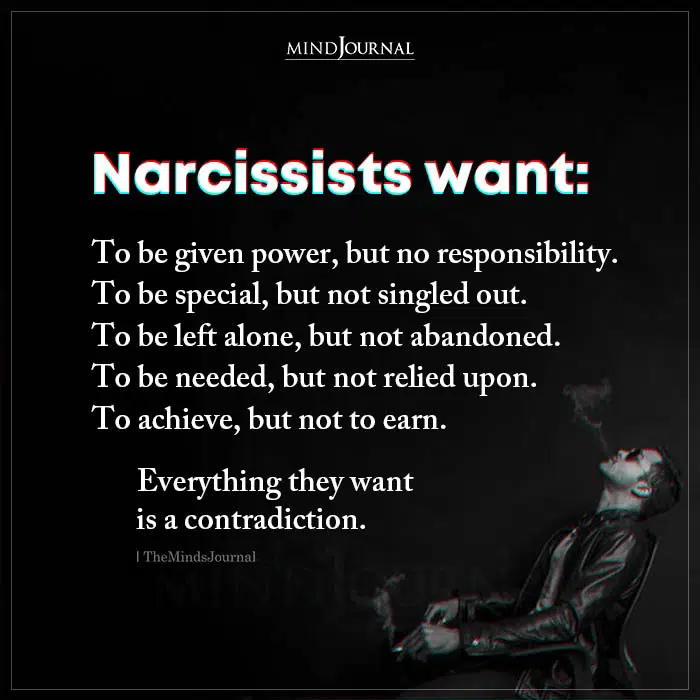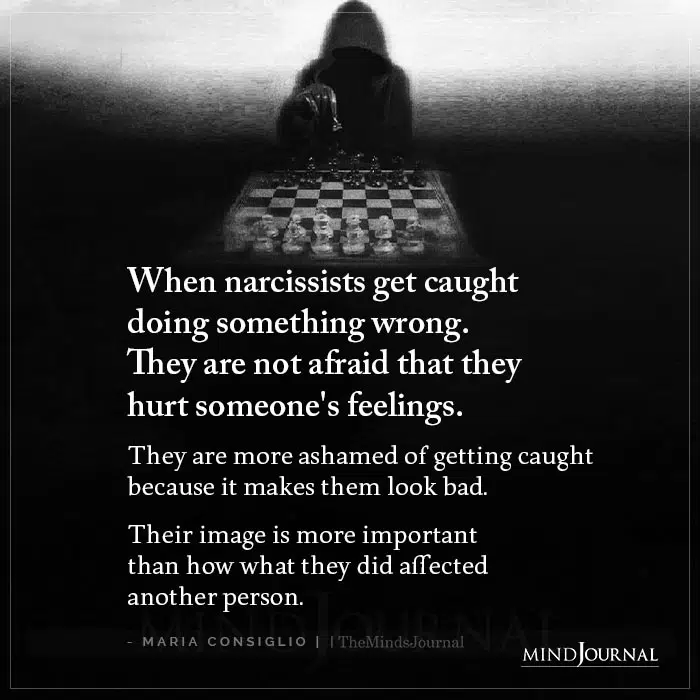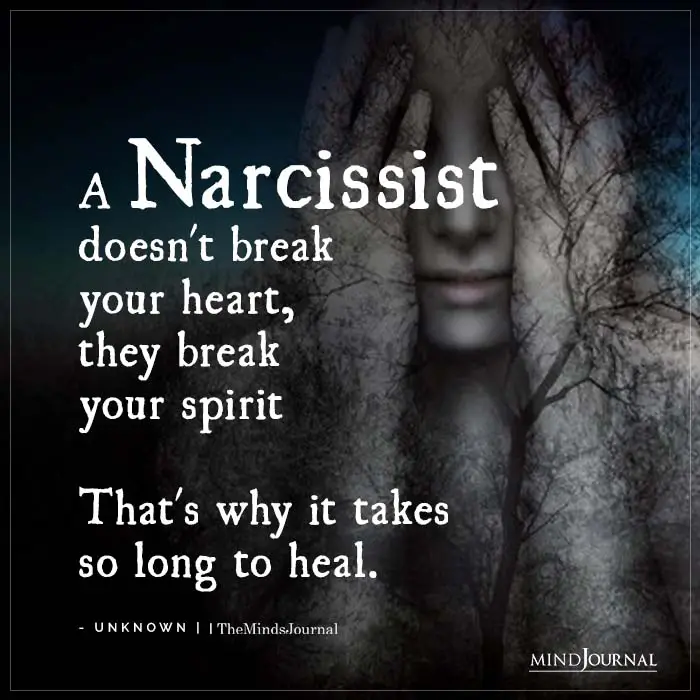A need for constant acknowledgment, admiration and superiority are things what makes a narcissist. But, when their beliefs get threatened, they experience a sense of narcissistic collapse. The fear of being publicly humiliated can lead a them to stop functioning.
Learn more about collapsed narcissist behavior.
Written By: Elinor Greenberg Ph.D.
KEY POINTS
- Narcissists can experience a narcissistic collapse when faced with a situation resulting in public humiliation and failure.
- During a narcissistic collapse, the narcissistic defenses that keep them confident are no longer working.
- In a narcissistic collapse, they feel extremely anxious, depressed, ashamed, and may be unable to keep functioning.
Many people picture narcissists as supremely confident people who never suffer from self-doubt. The reality is quite different. People with narcissistic personality disorder have unstable self-esteem and underlying shame and worthlessness. They depend on other people to give them the external validation they need to feel confident and special.
As a result of their dependence on external validation and their value on their public image, narcissists can experience a debilitating narcissistic collapse when they anticipate a humiliating public failure.
The anxiety associated with the idea of being exposed as flawed can interfere with their mustering enough defensive grandiosity to support their self-esteem. Without the prop of their grandiosity, they can sink into a shame-based depression in which they are afraid of the future and can no longer function in the present.
In extreme cases, narcissists may attempt suicide because they view death as less dreadful than being publicly exposed as an inadequate fake.
Note: I am using the terms narcissist, narcissistic, and NPD in this article as shorthand to describe someone that qualifies for a complete diagnosis of narcissistic personality disorder.

Read: What You Should Know About Narcissists, NPD, And Their Partners
The GOD Defense of Exhibitionist Narcissists
If we look at the common exhibitionist subtype of narcissistic personality disorder (NPD) that most people think of when they hear the term narcissist, it is fairly easy to see that they use a simple three-part defense to create a façade of extreme self-confidence. I call this the “GOD defense.”
G – Grandiosity:
They act as if they are special and entitled to do or say whatever they want. Grandiose motto: “I am special.”
O – Omnipotent:
They make all sorts of unrealistic claims about how powerful and knowledgeable they are. Omnipotent motto: “I can do anything, and I know everything worth knowing,”
D – Devaluing:
They feel free to attack and devalue anyone who is not clearly above them in their status hierarchy. Devaluing motto: “You are worthless, defective garbage, and are here to serve me.”
Exhibitionist narcissists act as if they are special, make exaggerated claims about what they know and what they can do, and devalue other people. As long as their GOD defense is working well, they feel great.
What Is Narcissistic Collapse?
I have seen a few moderate to high functioning clients with narcissistic personality disorder who entered psychotherapy in a collapsed state because they could no longer keep up the pretense that they were special. By collapse, I mean that they were extremely anxious and depressed and could not continue functioning at work or home.
These clients had been high achievers at work, and on the surface, their life appeared quite enviable. Now, something had shifted, they could no longer maintain their defensive grandiosity, and they believed that they were in danger of being publicly exposed as fakes and failures—or already had been.
Signs of Narcissistic Collapse Through Examples
Here are some examples with the details changed to protect these clients.
Example—Fred and the Exam
Fred, an exhibitionist narcissist, had risen through the ranks in his company. Over the years, as he gained power, he became more and more overtly grandiose.
When the company was sold, and the new owner took charge, he was not very impressed by Fred and what he had accomplished. Changes were implemented, and one of those was that additional training was required of all managers. As part of that training, they had to take a new state licensing exam that qualified them to take on new responsibilities.
Unfortunately, Fred had never been a good student, and passing exams was very hard for him. As more and more department members passed the exam, Fred felt increasingly afraid. He lost all confidence that he would pass and imagined how everyone in the department would laugh at him when they learned that he had failed.
Fred felt trapped. He knew that he was not making progress studying, but he was too embarrassed to admit that and ask for help. And he knew that if he took the exam and failed, he would be publicly humiliated in front of his colleagues.
Fred collapsed and could no longer function at work. At home, he drank too much and picked fights with his family over trivial matters. Eventually, he made a serious suicide attempt.
Fortunately, he was found in time, rushed to the hospital, and survived. He spent a month in a private mental hospital, got some excellent therapy, and I saw him for treatment after he got out.
Fred gradually regained his sense of proportion and some of his self-confidence. He made peace with his limitations and found a new job at a different company that did not require him to pass any exams.
Related: What Narcissists Think And What They Say

Example—Carole and Her Boss
Carole, an attractive woman with a closet narcissistic personality disorder, was a top saleswoman at her firm. Her boss thought she was great, and her confidence soared with every compliment he gave her. Pleasing her boss was her main source of narcissistic supplies.
When her boss left to take a job at another company, Carole totally lost her self-confidence because she no longer had him to validate her. She convinced herself that she would fail without her old boss to support her, and everyone would see her fail.
All of this made Carole so anxious that she took a leave of absence from work. When she came for her first therapy session with me, she was shaking with anxiety, and her confidence was in shreds.
The good news was that Carole was a good candidate for psychotherapy. Within a few months, she had calmed down enough to face her fears and return to work. The last I heard was that she had forged a good relationship with her new boss, and Carole was happily working hard to listen to him praise her.
Read: The Myth Of The Narcissistic Mask: What Happens When You Get To Know a Narcissist?

Example—William the Conqueror
William was a strikingly good-looking man, a natural athlete, and had gone to all the right schools. He married well, had children, and appeared to have a picture-perfect life.
But unlike Fred and Carole, William did the minimum at work and cut corners wherever he could. He also cheated on his wife repeatedly, and his marriage was in jeopardy.
William was so grandiose and his sense of entitlement so great that he was shocked when his utter selfishness, laziness, and disregard for other people’s feelings eventually caught up with him. His company failed, his wife caught him cheating and asked for a divorce, and his so-called friends deserted him.
By the time he entered therapy, he was deeply depressed. He suffered a complete collapse and could no longer function at all. He had sunk into a shame-filled pit of self-hatred. He barely left his house.
Despite his suffering, William was still looking for an easy way out of his dilemma. His failures had taught him nothing. He continued the same pattern in therapy that had ruined his life: cutting corners, not taking his therapy seriously, and wasting most of his sessions on self-pity.
Summary
To maintain a high level of functioning and stabilize their shaky self-esteem, people with narcissistic personality disorder need continual external validation.
When something interferes with their ability to get their usual narcissistic supplies, and they are faced with the possibility of a humiliating public failure, some narcissists collapse, stop functioning, and give up.
Related: What is Our True Nature? Are We Really Narcissists Only Out for Ourselves?
If you want to learn more about narcissist collapse, here’s a video to help you out:
Written By Dr. Elinor Greenberg Originally Appeared On Psychology Today
Frequently Asked Questions (FAQs)
What is a narcissistic collapse and will the narcissist recover from it?
Narcissists can experience a narcissist collapse when they face situations resulting in public humiliation and failure. They may stop functioning and can give up. But they can recover by rebuilding themselves.
How to spot a collapsed narcissist?
To spot collapsed narcissistic behavior you will notice that when usual narcissistic supplies, are over or they are faced with the possibility of a humiliating public failure, they give up and stop functioning at home or work.










Leave a Reply
You must be logged in to post a comment.